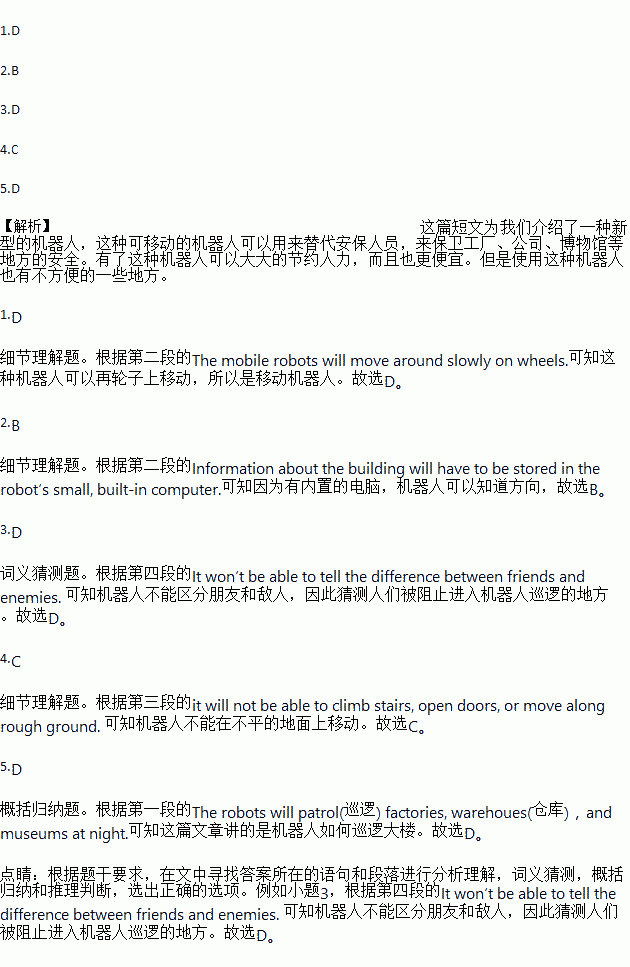题目内容
Many companies use guards and expensive alarm systems (报警系统) to protect their property (财产). Soon a new kind of protection will be used—robots. Engineers have been working on the first mobile robots for businesses. The robots will patrol (巡逻) factories, warehouses (仓库), and museums at night.
The mobile robots will move around slowly on wheels. They will be able to find people through walls and pick up sounds, such as breaking glass. They can be fixed with loud sirens (警笛) to frighten thieves, or radios to signal police or guards.
To protect a building, a robot will have to move around without knocking into the walls. Information about the building will have to be stored in the robot’s small, built-in computer. A floor map could be programmed into the computer’s memory, for example.
A mobile robot will not be able to do everything. Unlike human guards, it will not be able to climb stairs, open doors, or move along rough ground. It won’t be able to tell the difference between friends and enemies. Because of that, people will have to be barred from the area it patrols.
One kind of mobile robot will be able to “sense” whether a chair or box has been moved and go around it. This robot will also judge size well enough so that it won’t send an alarm if a cat crosses the room. And if someone tries to steal this robot, it will sound a loud, painful siren. The three-foot-tall robot will be hard to be stolen anyway. It will weigh about 200 pounds.
US companies pay almost $10 billion a year to protect their property with alarm systems and human guards. Mobile robots may be cheaper.
1.Why are robots of this kind called mobile robots?
A. Because they are able to climb stairs.
B. Because they are able to send an alarm.
C. Because they can open doors.
D. Because they can move around slowly on wheels.
2.Where will a robot get directions for moving around a building?
A. From a human guard. B. From a built-in computer.
C. From another robot. D. From radio signals.
3.The underlined word “barred” means “ ”.
A. protected B. allowed C. marked D. prevented
4.According to the passage, a mobile robot will not be able to .
A. sense whether something has been moved
B. sense a cat crossing the room
C. move along rough ground
D. find people through walls
5.This passage mainly describes how robots will .
A. protect the museum B. set off a siren
C. judge the size of a person D. patrol buildings
 高效智能课时作业系列答案
高效智能课时作业系列答案


